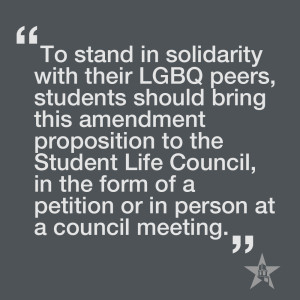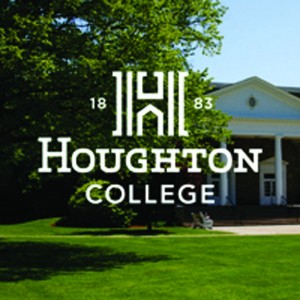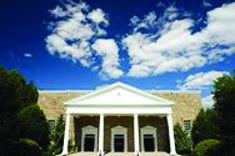By Rebecca Dailey ('25)
The Houghton University Board of Trustees is a group of volunteers, mostly composed of alumni, who form the chief policy-making government for the university.
The board is broken up into nine committees: Advancement, Academic Affairs, Audit, Enrollment, Finance, Investment, Student Life, Trustee and the Executive committee, which is composed of the chairs of the other committees, the board chair and the board secretary.
James Eckert and John Lee, both board members, explained the Board of Trustees’ undertaking as, less reacting, more planning and student focused.
The board’s role is to support Houghton’s president, and the president works with the university’s administration to keep the school running smoothly. In addition, there is a responsibility for the board to represent the Wesleyan Church, which Houghton University is affiliated with.
Rev. Johanna Rugh, an ex officio board member and the Executive Director Education Clergy Development of the Wesleyan Church, stated, “Giving support to the president, administration, business and building maintenance is a combined effort between the president and board.”
While the board checks in with President Wayne D. Lewis Jr. on what the administration is doing, they do not have the ability to directly intervene with decisions made by the administration and the president.
President Lewis stated, “One of the phrases that gets used a lot is boards should have their noses in and their fingers out. Which means they should be asking questions, they should be making sure the [p]resident and administration are doing what they’re supposed to do but they should not have their fingers on the actual admission and management of the university.”
However, if the board believes the president is not meeting what needs to be done for the university, they can remove them.
Many of the concerns arising during board meetings are in relation to building maintenance, the number of professors and the ups and downs of student enrollment.
Gary Larder, Chairman of the Financial Board, said, “We go over the budget for every year and what is achieved financially. It’s a challenge for a liberal arts university to get students for the meeting of financial targets. We try to look ahead, where we will be in the future in regards to students, professors and facilities.”
The board also looks at and accepts audit reports, and reviews the financial progress in the fall and finish of the spring.
Rev. Dr. Joseph Jennings, Chair of the Board of Trustees, explained, “We do have open seasons in which we invite resource people to the meetings . . . the vice president, representative from the student council, alumni board, the staff council and the faculty moderator.”
Terms of board members are also reviewed and renewed during these meetings, along with the president’s term. One of the main decisions for the Board of Trustees’ meetings on Oct. 23-24, was the renewal of President Lewis’ contract for the next five years until 2028.
Jennings said, “Dr. Lewis has worked tirelessly to help bring in a great incoming class this fall. We have every reason to think that we will continue to experience growth in enrollment . . . he and his team have made some great decisions and communicated the University’s mission with compelling clarity.”
The Board of Trustees’ vote for President Lewis’ contract renewal was unanimous, and they look forward to him continuing to serve Houghton.
President Lewis notes, “The relationship between the board and the administration, especially the president, is a really important partnership . . . working together in partnership there’s so much you can accomplish together and we are tremendously blessed at Houghton to have that.” ★




